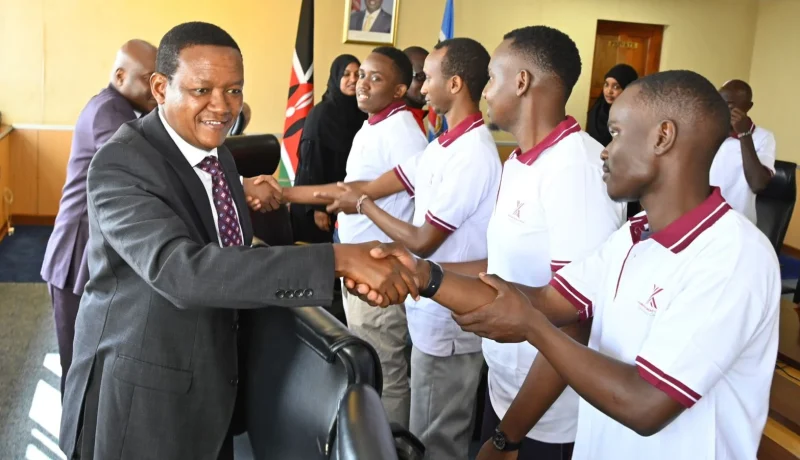
Flaws In Ethical Recruitment Of Kenyan Workers Exposed
The Senate Standing Committee on Labour and Social Welfare has been briefed on ongoing challenges that continue to undermine ethical recruitment practices for Kenyan migrant workers.
Led by Chairperson Senator Beth Syengo (Kitui County), the committee held a high-level consultative meeting with officials from the Association of Skilled Migrant Agencies of Kenya (ASMAK) and the Kenya Association of Private Employment Agencies (KAPEA) to address concerns affecting the country’s international labour export sector.
The meeting, held at Parliament Buildings, followed growing complaints of exploitation, irregular recruitment, and poor coordination between state agencies and private recruiters. It aimed to gather insights directly from industry stakeholders and explore potential policy or legislative solutions.
“This committee is deeply concerned about the welfare of our citizens who seek work abroad,” said Senator Syengo. “We are here to understand the pain points from the associations and identify interventions that can protect both our workers and legitimate agencies.”
ASMAK Chairperson Francis Wahome pointed out serious issues such as fraud, the re-emergence of deregistered agencies under new names, inflated medical testing costs, lack of follow-up on deployed workers, and delays caused by embassies.
KAPEA Chairperson Arjuma Omar Mwangala echoed similar frustrations, citing bureaucracy at Kenyan embassies—particularly in Qatar and the UAE—as a major deterrent for potential employers. “Our clients face impossible checklists and red tape. It discourages them from working with Kenyan agencies,” he said.
Senator Alexander Mundigi (Embu) challenged the National Employment Authority (NEA) over its inability to enforce clear guidelines. “It feels like anyone can recruit. The system is porous, and when things go wrong, the government is blamed,” he said.
The committee also raised concerns over the controversial Kazi Mtaani Zoom program. Senator Miraj Abdullahi questioned the associations’ roles in the project, which was reportedly riddled with fake promises and illegal fees. While ASMAK acknowledged that some members were involved, KAPEA denied any association, stating that its members were not licensed by NEA for the initiative.
Senator Okong’o Omogeni (Nyamira) supported the committee’s call for transparency. “We need clarity. Who is recruiting legally, and who is cutting corners? That’s what the public wants to know,” he said.
Some agency representatives shared emotional accounts of arrests and reputational damage caused by unscrupulous middlemen, while others raised concerns about consular neglect in assisting distressed or deceased workers despite following all proper procedures.
ASMAK Secretary General Monica Moema urged the government to harmonise oversight. “We’re regulated by NEA, but foreign affairs fall under another ministry. When problems arise abroad, we are left alone,” she said.
Senator Syengo, in her closing remarks, called for unity among recruitment agencies. “You are all Kenyans. If you want to be heard, speak with one voice. Consider forming a single federation,” she advised.
The Senate Labour Committee plans to engage NEA and the Ministry of Labour in the coming weeks to propose a comprehensive legal and policy framework to ensure safe, ethical, and transparent labour migration.




No Comment! Be the first one.